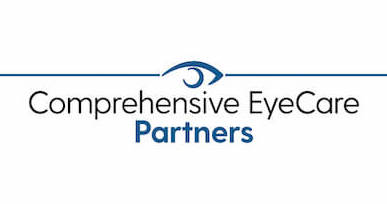
Besides visiting your eye doctor for routine eye exams, one of the most important things you can do to maintain your eye health is to tell them about any vision issues you may be experiencing. Blurry vision is a common vision issue and has many different causes.
Keep reading to learn more about blurry vision and if you should tell your ophthalmologist about it!
What Are The Common Causes of Blurry Vision?
Sudden onset blurry vision can signify a serious health risk, like stroke or concussion. However, blurry vision that develops gradually is typically due to more common, less serious causes.
The most common cause of gradual blurry vision is refractive errors like nearsightedness, farsightedness, astigmatism, and presbyopia. Refractive errors occur when the shape of your eye keeps light from focusing correctly on your retina.
Nearsightedness
Nearsightedness, followed by farsightedness, is the most commonly occurring refractive error. Blurred distance vision is the most apparent sign of nearsightedness.
You may also notice that you are squinting to see more clearly or have eye strain and headaches.
Farsightedness
Farsightedness causes blurry vision at near. This refractive error can also cause eye strain and headaches as the eyes struggle to focus.
Both nearsightedness and farsightedness can be corrected with prescription eyewear like glasses or contact lenses. Refractive surgery, such as LASIK or PRK, can also often correct these refractive errors.
Astigmatism
Astigmatism is another type of refractive error and can cause your vision to become blurry or distorted at all distances. This refractive error is usually caused by an irregularly shaped cornea, which prevents light rays entering the eyes from reaching a single focus point on the retina.
Astigmatism is also treated with prescription eyewear and can sometimes be effectively corrected with LASIK refractive surgery.
Presbyopia
The refractive error presbyopia also causes blurry vision at near, but for a different reason than farsightedness. Presbyopia is age-related.
Typically, people begin to notice signs of presbyopia around the age of forty. Around this age, you may notice increasingly blurred vision when you read a text message, a restaurant menu, or other small print.
Presbyopia is caused by the hardening of the lens inside the eye. Depending on the severity of your presbyopia, it can be corrected by glasses ranging from simple over-the-counter readers to multi-focus lenses.
Dry Eye Syndrome
Aside from refractive errors are several other non-emergency causes of blurry vision. These include dry eye syndrome, cataracts, and ocular or other migraines.
Often, dry eye syndrome is diagnosed after someone complains of blurry vision during a routine eye exam. Because the eye needs to stay lubricated to maintain clear vision, chronically dry eyes may have difficulty focusing.
Depending on the severity of your dry eye syndrome, your clear vision may be restored with artificial tears or medicated eye drops, among other treatments.
Cataracts
Blurry vision is one of the first signs of developing cataracts, which is the clouding of the typically clear lens of the eye. Cataracts frequently develop slowly and worsen as you age.
Cataract surgery is very common, safe, and the best way to restore clear vision.
Ocular Migraines
The blurry vision caused by ocular or other migraines is often a sign of the onset of a migraine event and is usually temporary. Though the blurry vision caused by migraines is typically harmless and resolves itself, it is important to tell your ophthalmologist if you suffer from migraines so they can rule out other causes.
Since the root cause of blurry vision can be many different things, it is absolutely necessary to tell your ophthalmologist if you are experiencing this symptom. Your ophthalmologist has years of training which allows them to provide you with both an accurate diagnosis of the cause of your blurry vision and corrective solutions that will restore your clear vision!
Are you experiencing blurry vision? Schedule an appointment with Shepherd Eye Center in Centennial Hills, Las Vegas, Southwest Las Vegas, Summerlin, or Henderson, NV, today!


